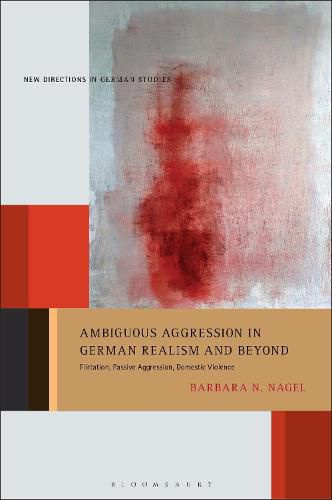Readings Newsletter
Become a Readings Member to make your shopping experience even easier.
Sign in or sign up for free!
You’re not far away from qualifying for FREE standard shipping within Australia
You’ve qualified for FREE standard shipping within Australia
The cart is loading…






Our main words defining emotional states suggest that we have clarity about them: expressions like love,
hatred,
anxiety, or sorrow seem clear enough. The reality, however, tends to be more complicated. We are often faced with gestures and utterances that are difficult to interpret; we thus find ourselves wondering about the affective force of what has just been said: Was that an insult?
Flirtation?
Aggression?
Ambiguous Aggression in German Realism and Beyond looks at three interlocking forms of social violence–flirtation, passive aggression, and domestic violence. In order to understand their circulation, it traces their literary-historical genealogy in German realism and modernism–in scenes from Annette von Droste-Hulshoff, Adalbert Stifter, Theodor Storm, Theodor Fontane, Robert Walser, and Franz Kafka, covering a historical period from the middle of the 19th century to the early decades of the 20th century.
Reading realist and modernist literature through 21st-century affect theory and vice versa, the analyses collected in this book show the deep literary history of our current cultural predicaments and predilections.
$9.00 standard shipping within Australia
FREE standard shipping within Australia for orders over $100.00
Express & International shipping calculated at checkout
Our main words defining emotional states suggest that we have clarity about them: expressions like love,
hatred,
anxiety, or sorrow seem clear enough. The reality, however, tends to be more complicated. We are often faced with gestures and utterances that are difficult to interpret; we thus find ourselves wondering about the affective force of what has just been said: Was that an insult?
Flirtation?
Aggression?
Ambiguous Aggression in German Realism and Beyond looks at three interlocking forms of social violence–flirtation, passive aggression, and domestic violence. In order to understand their circulation, it traces their literary-historical genealogy in German realism and modernism–in scenes from Annette von Droste-Hulshoff, Adalbert Stifter, Theodor Storm, Theodor Fontane, Robert Walser, and Franz Kafka, covering a historical period from the middle of the 19th century to the early decades of the 20th century.
Reading realist and modernist literature through 21st-century affect theory and vice versa, the analyses collected in this book show the deep literary history of our current cultural predicaments and predilections.